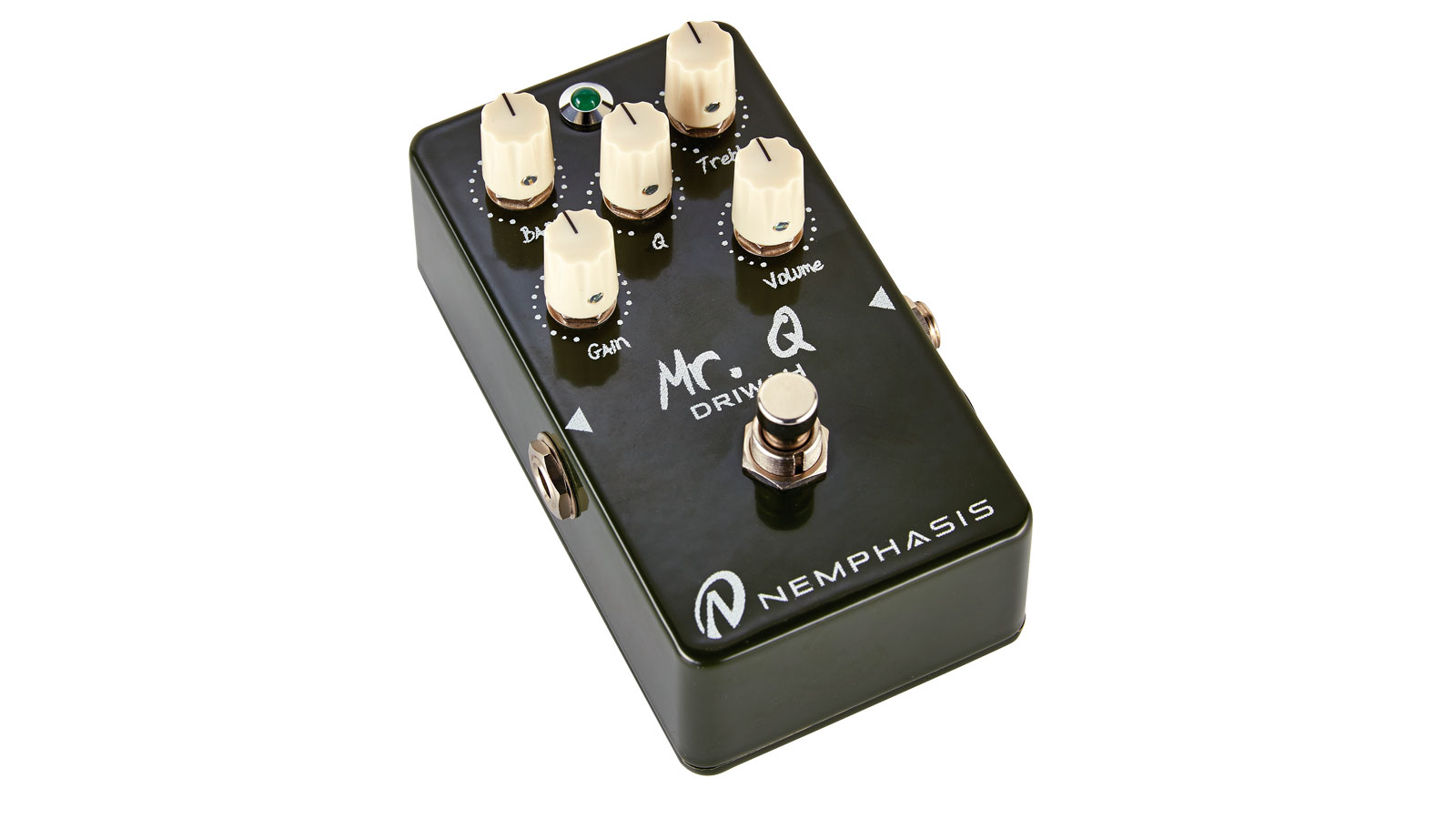MusicRadar Verdict
Not for everyone, but this pedal has a unique, quirky sound.
Pros
- +
Throaty overdrive tones. Chewy talk box/harmonic leads. Something different.
Cons
- -
No expression pedal Q control.
MusicRadar's got your back
Driwah? Is this a new pedal genre? While the name suggests a combined overdrive and wah, what we get is an odd hybrid.
"Kick in the pedal and you'll get a throaty overdrive that gets more saturated as you turn up the gain"
While the volume knob turns up the output, and bass and treble offer sympathetic tonal shadings, it's the gain knob and the Q knob that control the action.
Kick in the pedal and you'll get a throaty overdrive that gets more saturated as you turn up the gain. This is always affected by the position of the Q knob and sounds closest to straight overdrive at that knob's lowest position.
The Q knob controls a filter, emphasising higher frequencies as you advance it. We wouldn't describe the results as wah (although emulation of a 'parked' wah is possible), it's more a chewy talkbox sound for leads that easily take off into upper octave harmonics.
It's niche, but the Driwah will give your guitar a different voice that some players will undoubtedly like. We would have liked it more if the Q knob could be put under control of an expression pedal.
Want all the hottest music and gear news, reviews, deals, features and more, direct to your inbox? Sign up here.
Trevor Curwen has played guitar for several decades – he's also mimed it on the UK's Top of the Pops. Much of his working life, though, has been spent behind the mixing desk, during which time he has built up a solid collection of the guitars, amps and pedals needed to cover just about any studio session. He writes pedal reviews for Guitarist and has contributed to Total Guitar, MusicRadar and Future Music among others.

